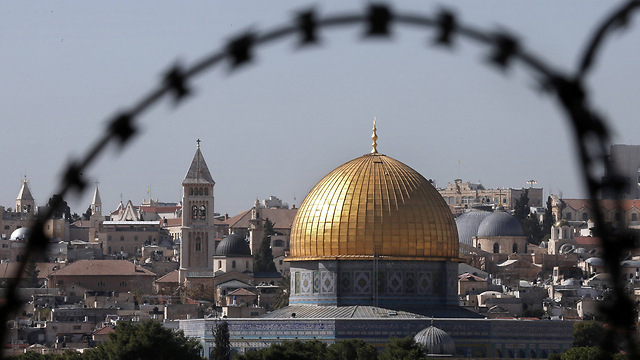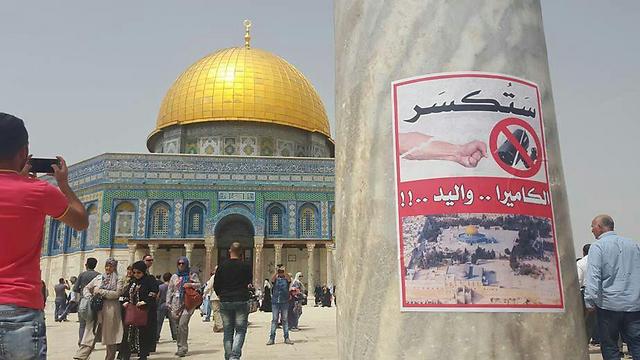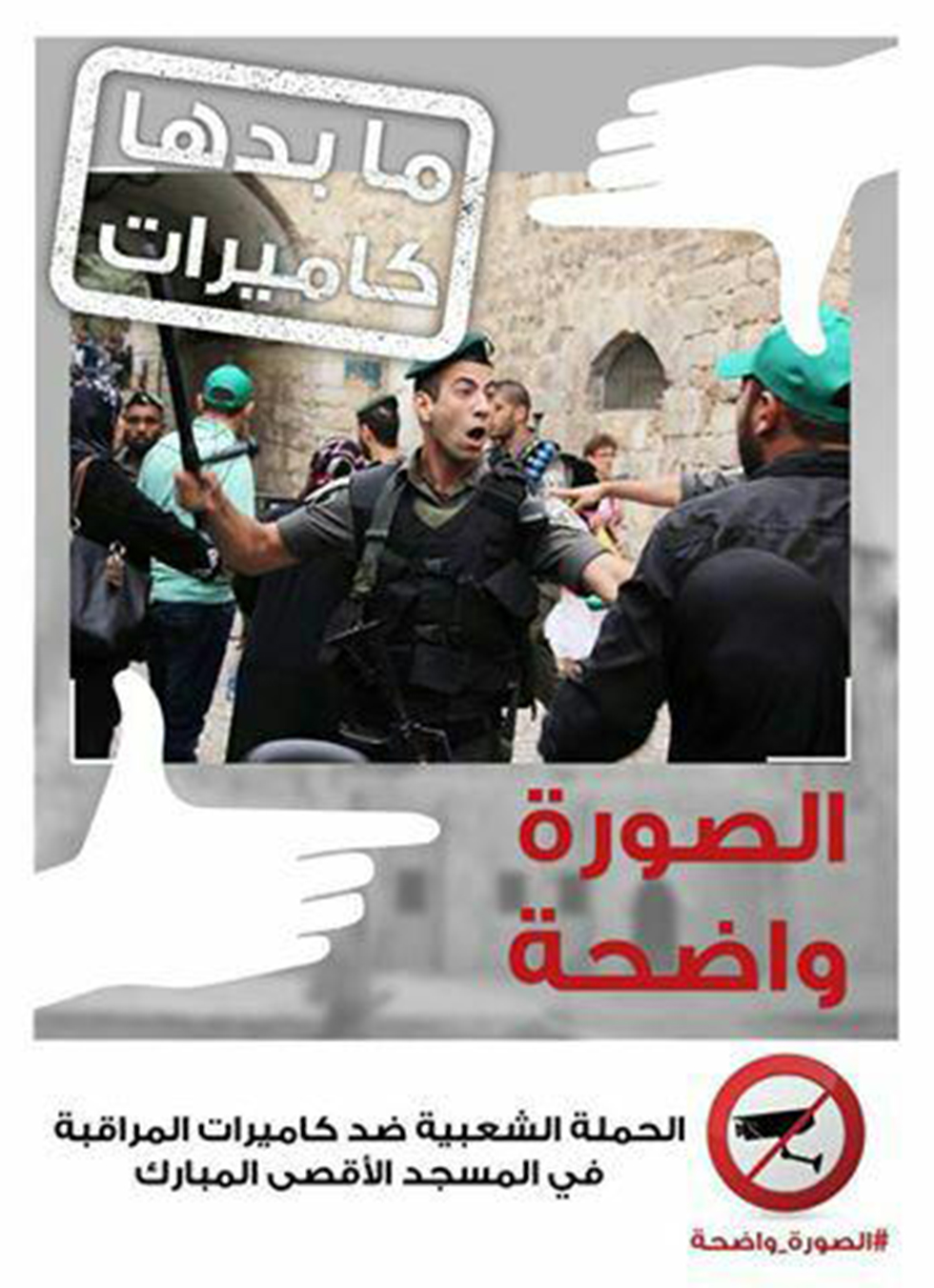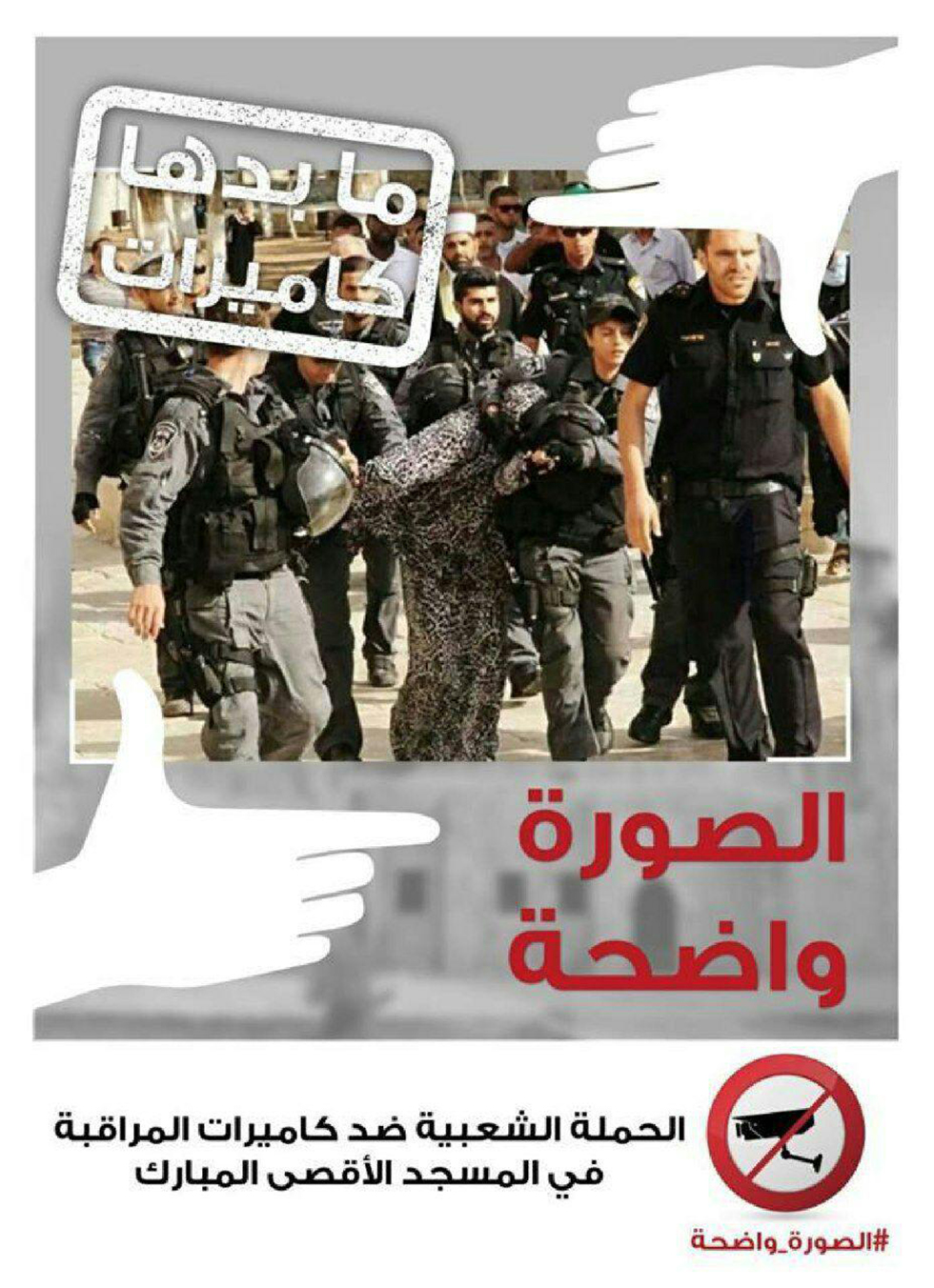The defense establishment has been taking steps to lower tensions and reduce incitement; PM Benjamin Netanyahu has called on Jewish and Arab leaders to calm their respective communities
Israel will deploy reinforcements around the Temple Mount in Jerusalem’s Old City leading up to Passover in an effort to stop rioting and prevent terror attacks, Prime Minister Benjamin Netanyahu said Thursday.
Tensions have been on the rise among Palestinians over the Temple Mount and the al-Aqsa mosque. These tensions are a result of the upcoming week-long Jewish holiday of Passover, starting April 22, which is expected to significantly increase the number of Jewish visitors to the Temple Mount area, particularly to the Western Wall where the traditional priestly blessing is attended by thousands. This is coupled with the reports that Jordan will soon install cameras throughout the holy site’s complex and the significant spike in social media incitement centered around the al-Aqsa mosque after months of relative calm.

The prime minister announced, “Ahead of Passover, all kinds of extremist elements are spreading lies about our policy on the Temple Mount to cause riots and stir things up. We are working against these inciters. We will increase our forces in places of friction; we will use additional defensive measures.” Netanyahu was speaking at a pre-Passover toast with the Union of Local Authorities.
Over the past six months, Israel has experienced some 270 attacks and attempted attacks—most of them shootings, stabbings and vehicular attacks. These offensives, which started during the Jewish holiday of Rosh Hashana, claimed the lives of 29 Israelis and four foreign nationals, while some 250 others were wounded.
Palestinians and Israeli Arabs have been accusing Israeli authorities of wanting to take control of the Temple Mount and are questioning the status quo in the holy site.
“There are, at present, attempts to rekindle unrest and the violence, especially over Passover and the Temple Mount, as we previously experienced during the holidays last autumn,” Netanyahu said.

“I tell you for certain: There is no change in our policy regarding the status quo on the Temple Mount,” he stressed. “Do not believe the lies, which I regret are also being spread by several MKs. We are committed to maintaining peace and security and will do whatever it takes to ensure the security of the citizens of Israel.”
The prime minister said that Israel sent messages to this effect to the Palestinian Authority, Jordan and the Arab world.
Netanyahu also called on both Jewish and Arab leaders “to work with your publics in order to calm the mood. Do not allow an extremist minority to change the order of things.”
The defense establishment has taken several actions in recent weeks in an effort to lower tensions. One of them was detaining, questioning and banning Zinat Awida and Hanadi Halwani from Temple Mount. The two East Jerusalem residents are prominent activists in the Murabitat organization, which is a group of women whose goal is to disrupt Jewish visits to the Temple Mount by following religious Jews and shouting “Allahu Akbar” throughout the visit.
Last Friday, before afternoon prayers, posters were put up throughout the al-Aqsa mosque complex calling on Palestinians to break the security cameras that Jordan plans on installing there in the near future. These cameras will broadcast the happenings on the Temple Mount to both the Jordanians and Israelis. On Wednesday, however, the posters were gone.

The posters joined a Palestinian campaign titled “The Picture is Clear—So No Cameras Are Needed,” which used photos of Israeli police officers attacking and dragging Palestinians from the al-Aqsa mosque complex.

The Palestinian opposition to the cameras, which has garnered support from Hamas and radical factions among Israeli Arabs, is likely derived from the fact that the live broadcast to the Jordanians could stop any attempt by Palestinian youth to provoke violent clashes on the Temple Mount and in East Jerusalem that would prevent Jews from entering the complex.

In an interview with Palestinian website Sawt al-Watan, MK Jamal Zahalka (Joint List) called to stop “in any way possible” Jews from going on the Temple Mount and claimed the number of Jews visiting the holy site increases every day.
“During the al-Aqsa intifada, we sacrificed 4,000 martyrs for the al-Aqsa mosque, and the continuation of Jewish entry into the complex is what causes the current intifada,” Zahalka claimed.
He went on to say, “The continuation of the intifada is depended on the decision of (Palestinian) organisations—if they will take up the popular fight or leave it to young people and individuals.” His statement was shared across Arabic-language media and provoked widespread, visceral reactions.
In response, Zahalka later released a clarification in which he asserted, “My public duty is to warn against the possibility of dangerous deterioration. We need to do all that we can to prevent further bloodshed, and if the Israeli government is interested in calming the situation, it needs to prevent provocative visits to the mosque complex. It needs to understand that the problem is these visits and not calls for their cessation.”
As reported by Ynetnews
